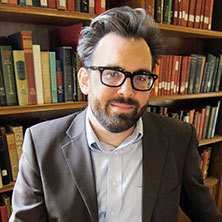
Russell Sbriglia , Ph.D.
Associate Professor and Director of Graduate Studies
Department of English
(973) 275-5861
Email
Fahy Hall
Room 367
Russell Sbriglia, Ph.D.
Associate Professor and Director of Graduate Studies
Department of English

